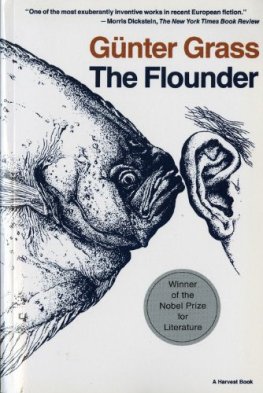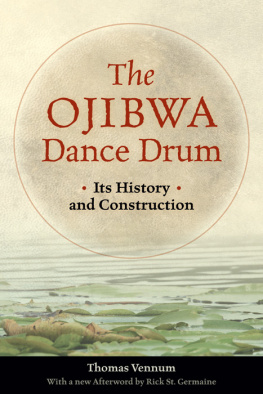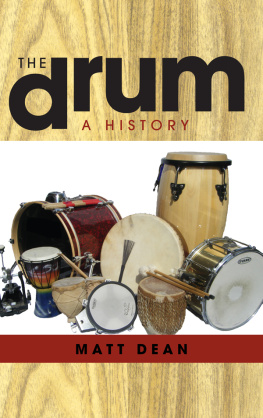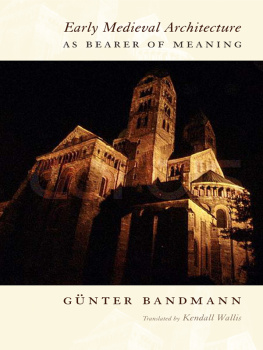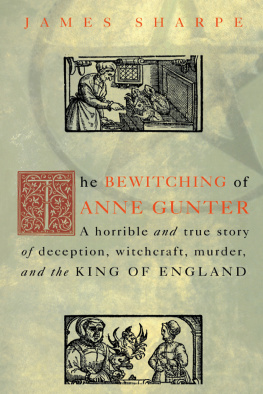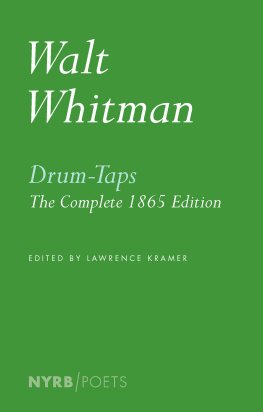Gunter Grass - The Tin Drum
Here you can read online Gunter Grass - The Tin Drum full text of the book (entire story) in english for free. Download pdf and epub, get meaning, cover and reviews about this ebook. year: 2010, publisher: Mariner Books, genre: Detective and thriller. Description of the work, (preface) as well as reviews are available. Best literature library LitArk.com created for fans of good reading and offers a wide selection of genres:
Romance novel
Science fiction
Adventure
Detective
Science
History
Home and family
Prose
Art
Politics
Computer
Non-fiction
Religion
Business
Children
Humor
Choose a favorite category and find really read worthwhile books. Enjoy immersion in the world of imagination, feel the emotions of the characters or learn something new for yourself, make an fascinating discovery.
- Book:The Tin Drum
- Author:
- Publisher:Mariner Books
- Genre:
- Year:2010
- Rating:3 / 5
- Favourites:Add to favourites
- Your mark:
- 60
- 1
- 2
- 3
- 4
- 5
The Tin Drum: summary, description and annotation
We offer to read an annotation, description, summary or preface (depends on what the author of the book "The Tin Drum" wrote himself). If you haven't found the necessary information about the book — write in the comments, we will try to find it.
Gunter Grass: author's other books
Who wrote The Tin Drum? Find out the surname, the name of the author of the book and a list of all author's works by series.
The Tin Drum — read online for free the complete book (whole text) full work
Below is the text of the book, divided by pages. System saving the place of the last page read, allows you to conveniently read the book "The Tin Drum" online for free, without having to search again every time where you left off. Put a bookmark, and you can go to the page where you finished reading at any time.
Font size:
Interval:
Bookmark:
HOUGHTON MIFFLIN HARCOURT
Boston New York 2009
Also by GNTER GRASS
Cat and Mouse
Dog Years
The Plebeians Rehearse the Uprising
Four Plays
Speak Out!
Local Anesthetic
Max: A Play
From the Diary of a Snail
Inmarypraise
In the Egg and Other Poems
The Flounder
Meeting at Telgte
Headbirths
Drawings and Words, 1954-1977
On Writing and Politics, 1967-1983
Etchings and Words, 1972-1982
The Rat
Show Your Tongue
Two StatesOne Nation?
The Call of the Toad
Novemberland
My Century
Too Far Afield
Crabwalk
Peeling the Onion
For Anna Grass
Copyright 1959 by Hermann Luchterhand Verlag GmbH
Translation copyright 2009 by Breon Mitchell
All rights reserved
For information about permission to reproduce selections from this
book, write to Permissions, Houghton Mifflin Harcourt Publishing
Company, 215 Park Avenue South, New York, New York 10003.
www.hmhbooks.com
Library of Congress Cataloging-in-Publication Data
Grass, Gnter, date.
[Blechtrommel. English]
The tin drum / Gnter Grass ; a new translation by Breon Mitchell.
p. cm.
Translation of: Die Blechtrommel.
ISBN 978-0-15-101416-3
1. GermanyHistory1945-1955Fiction. I. Mitchell, Breon. II. Title.
PT2613.R338B5513 2009
833'.914dc22 2009013272
Book design by Linda Lockowitz
Printed in the United States of America
Doc 10987654321
Contents
Introduction vii
BOOK ONE
The Wide Skirt 3
Under the Raft 13
Moth and Light Bulb 26
The Photo Album 38
Glass, Glass, Little Glass 50
The Schedule 61
Rasputin and the ABCs 72
Long-Distance Song Effects from the Stockturm 84
The Grandstand 96
Shop Windows 111
No Miracle 121
Good Friday Fare 133
Tapering toward the Foot 146
Herbert Truczinski's Back 155
Niobe 168
Faith Hope Love 181
BOOK TWO
Scrap Metal 193
The Polish Post Office 205
House of Cards 219
He Lies in Saspe 229
Maria 241
Fizz Powder 253
Special Communiqus 264
Carrying My Helplessness to Frau Greff 274
Seventy-five Kilos 287
Bebra's Theater at the Front 299
Inspecting Concreteor Mystical Barbaric Bored 310
The Imitation of Christ 327
The Dusters 341
The Christmas Play 352
The Ant Trail 364
Should I or Shouldn't I 377
Disinfectant 389
Growth in a Boxcar 400
BOOK THREE
Flintstones and Gravestones 413
Fortuna North 428
Madonna 49 440
The Hedgehog 453
In the Wardrobe 466
Klepp 476
On the Coco Rug 487
The Onion Cellar 497 On the Atlantic Wall or Bunkers Can't Cast Off Concrete 512
The Ring Finger 527
The Last Tram or Adoration of a Canning Jar 538
Thirty 553
Translator's Afterword 565
Glossary 578
In the summer of 1959, I completed my first novel, The Tin Drum, in Paris. I had just corrected proofs and created an image for the dust jacket when a letter arrived from the legendary publisher Kurt Wolff in New York. Wolff, who had left Germany in the thirties, asked me to meet him at a hotel in Zurich. He strode up to me in the hotel lobby, a tall gentleman, with his wife and colleague Helen Wolff beside him.
"I'm thinking of publishing your book in America," he said. "Do you think the American reader will understand it?" "I don't think so" I replied. "The setting is provincial, not even Danzig itself, but a suburb. The novel is filled with German dialect. And it concentrates solely on the provinces" "Say no more," he broke in. "All great literature is rooted in the provincial. I'll bring it out in America."
The American Tin Drum appeared in 1962 with Pantheon Books of New York, a firm founded by Wolff.
Later on, I was often urged to give some account of the origins of my first novel, but I didn't feel ready to sift through the circumstances and influences with a prying eye. I was almost frightened I might discover my own tricks.
Up to then I had written poetry and plays, as well as libretti for the ballet (my first wife Anna was a dancer). In 1956 Anna and I left Berlin and moved to Paris with the vague idea of writing a novel circulating in my mind. I took pleasure in art, enjoyed the varieties of form, and felt the urge to create an alternate reality on paperin short, I had all the tools needed to undertake any artistic project, regardless of its nature. If things had gone solely according to my own desires and instinct for play, I would have tested myself against purely aesthetic norms and found my role in the scurrilous. But I couldn't. There were obstacles. The gestation of German history had brought forth piles of rubble and dead bodies, a mass of material that, once I began to clear it away, only increased from book to book.
With the first sentence, "Granted: I'm an inmate in a mental institution...," the barriers fell, language surged forward, memory, imagination, the pleasure of invention, and an obsession with detail all flowed freely, chapter after chapter arose, history offered local examples, I took on a rapidly proliferating family, and contended with Oskar Matzerath and those around him over the simultaneity of events and the absurd constraints of chronology, over Oskar's right to speak in the first or third person, over his true transgressions and his feigned guilt.
The Tin Drum struck a distinctly new tone in postwar German literature, one that was greeted with enthusiasm by many critics and with annoyance by others. The poet and essayist Hans Magnus Enzensberger offered this review in 1959:
The Tin Drum knows no taboos.... Again and again the narrative enters the forbidden sphere where disgust and sexuality, death and blasphemy meet.
What differentiates Grass in this respect both from any form of pornography, and from the so-called "stark realism" of the American school, what legitimizes these blunt forays, indeed elevates them to acts of artistic brilliance, is the total objectivity with which he presents them. Unlike Henry Miller, Grass does not seek out taboos; he simply doesn't notice them. It would be unfair to accuse him of deliberate provocation. He neither avoids scandal nor invites it; but that is precisely what will give rise to scandal: Grass doesn't have a guilty conscience, he takes what we find shocking for granted.
This passage shows the wide variety of responses my work evoked in the late fifties. As a result, from the very start of my career as a novelist, I was considered controversial.
The "shocking" parts of The Tin Drum may have led translators and publishers in other countries to omit or shorten passages they believed their own readers might find disgusting or blasphemous. And some no doubt thought that by pruning this very long novel, written by a bra-zen young author who was still unknown, they could only improve it. I thought highly of the late Ralph Manheim, and his translations of several of my works into English were marvelous, but both literary historians and translators indicated repeatedly that his translation of The Tin Drum needed revision. I heard the same thing about the early translations of The Tin Drum into other languages.
Thus, in the early summer of 2005, ten translators, including Breon Mitchell, joined me in Gdask with one set goal in mind: to create new versions of my first novel in their own languages. To prepare myself for their questions, I reread
Next pageFont size:
Interval:
Bookmark:
Similar books «The Tin Drum»
Look at similar books to The Tin Drum. We have selected literature similar in name and meaning in the hope of providing readers with more options to find new, interesting, not yet read works.
Discussion, reviews of the book The Tin Drum and just readers' own opinions. Leave your comments, write what you think about the work, its meaning or the main characters. Specify what exactly you liked and what you didn't like, and why you think so.


